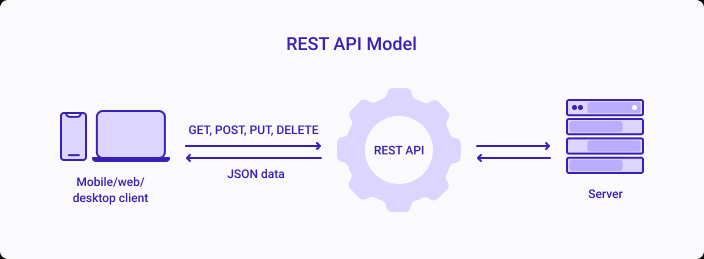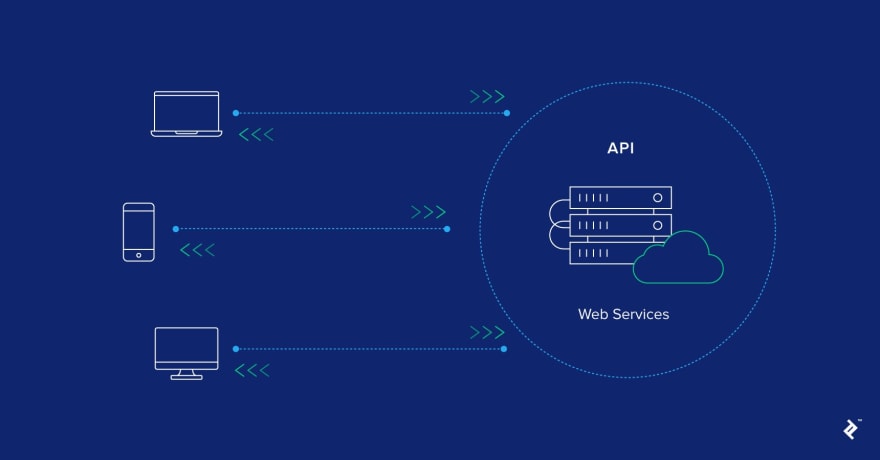We often come across several confusing words in this world of web development, allowing them to pass. These include REST API, Web API, and SOAP API. Here we have mentioned their differences.
What do you mean by REST API?
We will first try to comprehend what REST is. REST isn’t a tool, protocol, or library; and instead, it is a web service providing a channel of communication between computers or systems on the web. It happens to be a standard used as an architectural way of creating a network-based software system.
Consequently, a REST API happens to be an application interface backed by REST’s architectural style. It refers to services, tools, or programs based on the architectural principle of REST.
Although it is possible to use REST on virtually any protocol, it uses HTTP when utilized for web APIs. REST APIs’ primary advantage is that they offer more flexibility. Data will not be constrained to methods or resources when it comes to REST APIs. Consequently, it can make several types of calls, modify structurally with the ideal application of hypermedia, and return different data formats.
Why chooses REST?
The initial reason happens to be its scalability. This particular property helps to make the protocol quite popular out there. The reason for this is client and server separation. The product can be scaled without much difficulty with the assistance of expert developers.
One more reason behind the popularity of REST is its flexibility and portability. With the assistance of REST, it will be possible for one to have indispensable data covered in just one request. Besides this, it is also quite simple to transfer the data between different servers. It likewise provides you with the access to make alterations at any moment on the database. It is also feasible to host backend and front-end on different servers.
One more reason to opt for REST happens to be the independence brought about it. The separation between client and server makes it very simple for the protocol to work independently on various development projects. The good thing is that it can also adapt to various syntax and working platforms, providing you with plenty of opportunities to work on various projects linked with development.
What do you mean by Web API?
Web API refers to an open-source framework used for writing HTTP APIs. It is essential to bear in mind that it is not a technology but a concept. Web app development services can create Web API by using different types of technologies, including Java, .net, and so forth. Web API might be RESTful as well. The protocol specification is implemented by Web API, and in this way, it includes concepts such as URLs, caching, versioning, and request/response headers.
Web API business Benefits
Business logic centralization will help to reduce your endeavor. Consequently, it will be possible to maintain business information consistently.
It happens to be open-source.
It makes use of low bandwidth (JSON or XML data). HTML content can also be passed by us if needed.
Web API Controller pattern happens to be almost identical to MVC Controller. Therefore, it is quite simple to maintain and comprehend.
Although not an integral part of MVC Framework, Web API is the ASP.Net Development framework’s part. As a result, there is no other dependency for deployment and development.
What do you mean by SOAP API?
Simple Access Protocol (SOAP) happens to be a standard communication or messaging protocol system that enables procedures using different OSs like Linux and Windows for interacting and communicating using XML and HTTP. Web app developers have designed SOAP APIs to create, update, recover, and delete records like passwords, accounts, custom objects, and leads.
Let's know more here Differences between SOAP and REST APIs:https://www.rlogical.com/blog/what-is-rest-api-vs-web-api-vs-soap-api







Top comments (0)